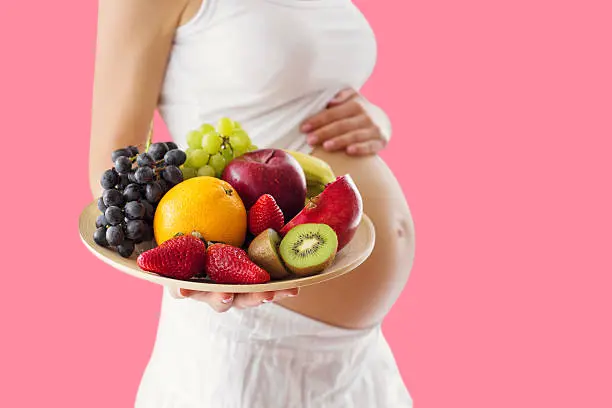During pregnancy, a woman's body undergoes significant physiological changes that require a delicate balance in her diet.
Among the elements that play a pivotal role in supporting this stage are sugars as the primary source of energy, but consuming them correctly is essential to avoid negative effects on the mother and fetus.
The Role of Sugars as an Immediate Source of Energy During Pregnancy

Sugars provide the body with the energy needed to perform daily vital functions, especially during pregnancy, when energy consumption increases. They:
- Contribute to reducing feelings of fatigue and exhaustion.
- Helps regulate blood glucose levels when consumed in moderation.
- Stimulates physical and mental activity in pregnant women.
The Effect of Sugars on Fetal Growth in the Uterus
Simple and complex carbohydrates play a role in fetal nutrition and development. They:
- Glucose crosses the placenta and is the primary energy source for the fetus.
- Supports the development of the fetal brain and nervous system.
- Promotes the growth of vital tissues and organs.
The Difference Between Complex Sugars and Simple Sugars
Not all sugars are equal in nutritional value or health effects:
- Complex sugars, such as oats and potatoes, provide sustained energy.
- Simple sugars, such as white sugar, cause a rapid rise in blood sugar followed by a sharp drop.
- Moderation and conscious choice reduce the risk of gestational diabetes.
The Effect of Excessive Sugars on Weight During Pregnancy
Excessive calories from sugars lead to health problems, as they:
- Lead to unwanted weight gain.
- Increase the risk of birth complications.
- Affect the health of the heart and blood pressure of pregnant women.
The Relationship Between Sugars and Gestational Diabetes
Excessive sugar consumption may increase the risk of gestational diabetes, as:
- High blood glucose levels increase the burden on the pancreas.
- May negatively affect fetal growth and lead to excess weight.
- It is necessary to undergo a gestational diabetes test between weeks 24 and 28.
Natural Sugars from Fruits and Vegetables
Natural sources of sugars provide comprehensive nutritional benefits, as they:
- Contain fiber, which helps regulate sugar absorption. It provides the body with vitamins and minerals essential for pregnancy.
- It reduces the need to consume processed sugars.
When to Eat Sugar and Its Effect on the Body
The timing of sugar consumption affects how the body processes it, as:
- It is best to eat sugars during active periods, such as in the morning or after meals.
- Avoiding sugars at night reduces fat storage.
- Dividing meals reduces blood sugar fluctuations.
Sugars and Psychological State During Pregnancy

Mood and psychological state are affected by blood sugar levels, as:
- A sudden drop in blood sugar causes stress and irritability.
- Eating healthy sugars naturally improves mood.
- Supports feelings of fullness and satisfaction when regulating meals.
Frequently Asked Questions About Sugar Consumption During Pregnancy
Should I completely abstain from sweets during pregnancy?
No, but they should be consumed in moderate amounts and healthy varieties should be chosen.
Are natural juices a good source of sugar?
Yes, but it is better to eat whole fruit to get the fiber it needs.
How do I know if I am consuming too much sugar?
Signs such as fatigue, constant hunger, and rapid weight gain may indicate this.
What are healthy alternatives to processed sugars?
Natural honey, dried fruits, and coconut sugar are healthy, moderate options.
Article Summary
Sugars are an important nutrient during pregnancy, but they require moderation and a variety of sources.
Natural sugars provide energy and support fetal growth, while excessive processed sugars can lead to health complications. Therefore, pregnant women should choose their food sources carefully and consult their doctor to ensure their safety and that of their fetus during this important stage.